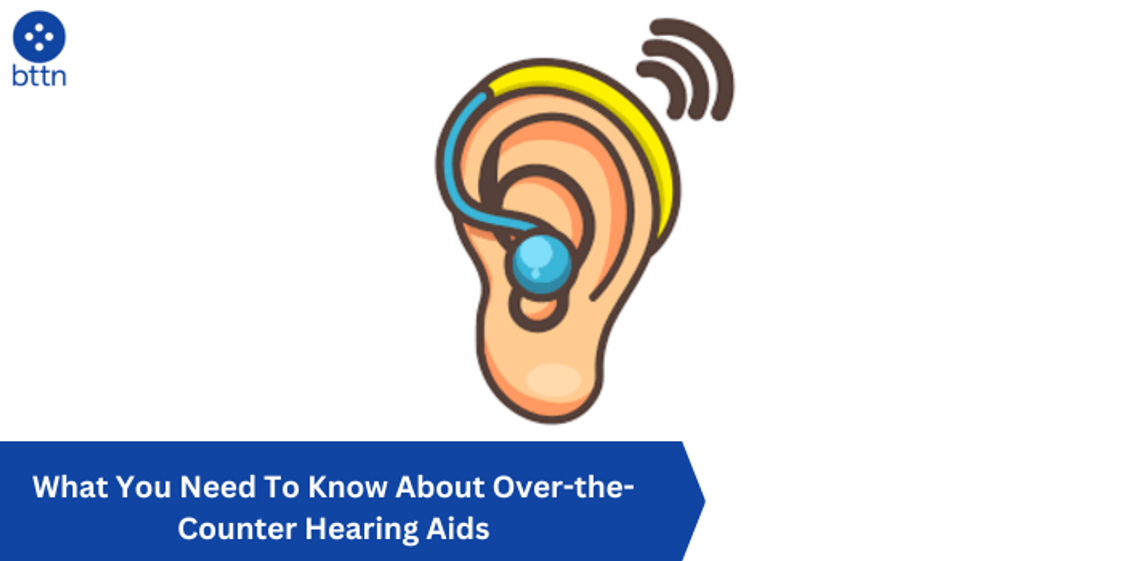
What You Need To Know About Over-the-Counter Hearing Aids
Posted by Pankaj Dhiman on Mar 8th 2024
Many people experience some degree of hearing loss as they age. This can make it difficult to follow conversations, enjoy music, or even hear the doorbell. Until recently, the only option for those seeking hearing help was to visit an audiologist and get fitted for prescription hearing aids. However, with the introduction of over-the-counter (OTC) hearing aids in 2024, there's now a more accessible and affordable option for many people.
This blog post will explore everything you need to know about OTC hearing aids, including:
- Who can benefit from them
- How they work
- The pros and cons of OTC hearing aids
- How to choose the right OTC hearing aid for you
- Tips for using and caring for your OTC hearing aids
Must Read: Top 5 Cardinal Health Foley Catheters for 2024
Are OTC Hearing Aids Right for You?
OTC hearing aids are intended for adults aged 18 and over with perceived mild to moderate hearing loss. If you find yourself having trouble hearing conversations in quiet environments, needing people to repeat themselves frequently, or struggling to hear on the phone, OTC hearing aids might be a good solution.
However, it's important to note that OTC hearing aids are not suitable for everyone. If you have:
- Severe hearing loss
- Sudden hearing loss
- Drainage or pain in your ear
- Ringing in your ears (tinnitus)
Must Read: 10 Best Medical First Aid Kits in US (2024)
How Do OTC Hearing Aids Work?
OTC hearing aids are similar to traditional prescription hearing aids in that they amplify sound. However, they are generally simpler in design and functionality. Most OTC hearing aids are digital and use microphones to pick up sound, amplifiers to make the sound louder, and speakers to deliver the amplified sound to your ear canal.
Some OTC hearing aids offer basic features like volume control and noise reduction, but they typically lack the advanced programming and customization options found in prescription hearing aids.
Pros and Cons of OTC Hearing Aids
Pros:
- More affordable: OTC hearing aids are significantly cheaper than prescription hearing aids, which can cost thousands of dollars.
- More accessible: You can purchase OTC hearing aids directly from stores, pharmacies, or online retailers without needing a prescription or appointment with an audiologist.
- Convenient: Many OTC hearing aids are small and discreet, and some are even rechargeable.
Cons:
- Limited features: OTC hearing aids may not be as effective for people with more complex hearing loss needs.
- No professional fitting: Without a professional fitting by an audiologist, there's a risk that the OTC hearing aids may not be properly adjusted for your specific hearing loss.
- Limited follow-up care: You won't receive the same level of ongoing care and support from a hearing professional as you would with prescription hearing aids.
Must Read: IV Fluids: Types, Administration, and Monitoring
Choosing the Right OTC Hearing Aid
With a growing number of OTC hearing aids available, it's important to do your research before making a purchase. Here are some factors to consider:
- Your hearing loss: Consider the severity and type of your hearing loss.
- Features: Decide which features are important to you, such as volume control, noise reduction, or Bluetooth connectivity.
- Budget: OTC hearing aids range in price from around $100 to $500.
- Ease of use: Look for OTC hearing aids that are easy to adjust and use.
- Return policy: Make sure the retailer has a return policy in case the OTC hearing aids don't meet your needs.
Must Read: Radiation Therapy: Types, Uses, Risks and Benefits
Tips for Using and Caring for Your OTC Hearing Aids
- Read the instructions carefully: Make sure you understand how to use and care for your OTC hearing aids properly.
- Start with a low volume: Gradually increase the volume until you find a comfortable listening level.
- Clean your OTC hearing aids regularly: Follow the manufacturer's instructions for cleaning your OTC hearing aids.
- Store your OTC hearing aids in a dry place: Avoid storing your OTC hearing aids in extreme temperatures or humid environments.
- See your doctor if you experience any problems: If you experience any pain, discomfort, or worsening of your hearing, consult your doctor.
Conclusion
OTC hearing aids offer a valuable option for people with mild to moderate hearing loss. They are more affordable and accessible than traditional prescription hearing aids. However, it's important to understand the limitations of OTC hearing aids and whether they are the right solution for your individual needs. If you're considering OTC hearing aids, be sure to talk to your doctor and do your research to find a product that meets your specific requirements.
